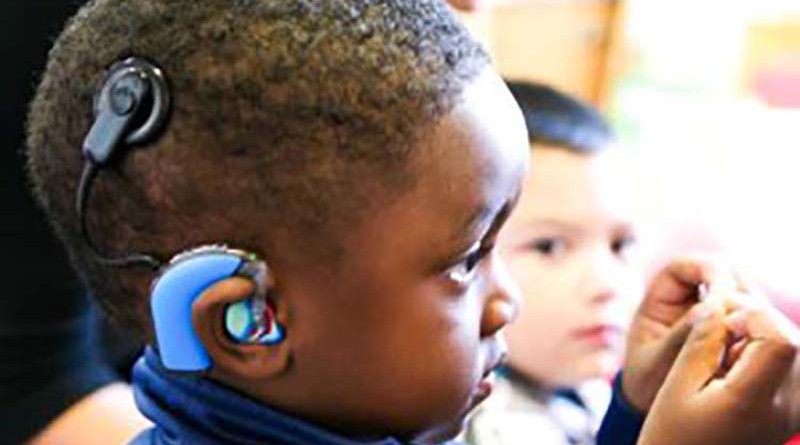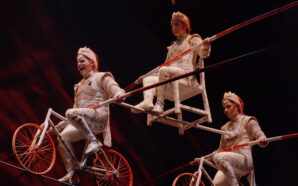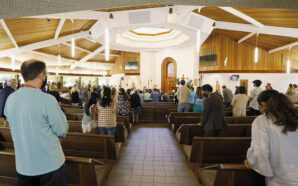Arturo Hilario/ El Observador
Nestled in Redwood City is the sound of hope.
For 48 years, The Weingarten Children’s Center (WCC) has provided services to deaf or hard of hearing children in an effort to help them achieve whatever their goals in this world may be.
From infancy to kindergarten, the WCC diagnoses, educates and offers the best support services for children with cognitive development issues. The center has its own audiology center, where they manage all of their equipment. It includes a soundproof booth, and calibrated equipment to check all the hearing aids and cochlear implants. A new state of the art multi-sensory environment room, affectionately titled the “bubble room” by the children, boasts auditory, tactile, vestibular, and movement stimulation tools.
The cochlear implants that many of the children at WCC have are small rounded devices that are implanted in the children’s head, close to the ear. Within the implant are two nodes that transmit data into the brain as electrical impulses. “They’re wearing a small computer,” says the center’s Executive Director Kathleen Sussman. “The external hardware is something that they upgrade all the time. (It) fits into a computer and audiologists can read all the different maps of each of these.”
Each implant is custom set for each child and a safety mechanism prevents loud sounds from hurting. The data collected from these devices allows speech therapists to work with the audiologists, who keeps track of all of the children’s responses to sounds.
The importance of reaching deaf or hard of hearing children at this age is stressed by Jessica Chang Greenman, an Alumni Parent and current Development Coordinator at WCC. “It’s (Deafness) not something that can be reversed, they can’t be taught to speak later in the same efficacy. We need to capture the years in its infancy, when it has its most impact. That’s what we try to do here. It’s a very intense program that we have here, but there’s a reason we do it. Our children are graduating earlier and earlier.”
The parents, many who are not being charged for the services at WCC, come from as far as Vallejo and Gilroy. A mix of grants and fundraising allows parents to afford these services. Amazingly, not a single family has ever been turned away for lack of funds. “We have subsidized, we have raised funds for the families. That’s why a lot of the families are willing to chip in any way they can. We have probably have some of the best teachers that specialize in deaf or hard of hearing children and speech therapists that work with implanted children,” says Greenman.
BabyTalk
Patricia Gómez, the sole bilingual Speech-Language Pathologist with the BabyTalk program at WCC, strives to connect with her families and ultimately have these families help their own child’s development. Gómez was the first therapist with the BabyTalk program, and now 4 years later more than 30 babies participate.
Gómez’s own nephew went through the services at WCC and ultimately influenced her decision to change her major as an undergrad. “I think I was destined to do this but that’s how I came and I fell in love with what they were doing at the center.”
BabyTalk’s iPad-streamed therapy sessions with parents and children allow for mobility, and the connection to Pathologists like Gómez, at an instants notice. The 45-minute to an hour session a week enables flexibility for these families. Additionally, the iPad and prepaid internet connection also come at no cost to families.
Through her teletherapy sessions she has become a lifeline to the families with deaf or hard of hearing babies. “I build such a rapport with them that they don’t hesitate to call me for anything. There’s limited resources out there sometimes for this population and I feel like I have to be there for them.”
Using an example of a previously recorded parent, using her iPads’ Face Time program to conduct a speech therapy session with Gómez, it’s easy to see how this system benefits the schedule of the parents.
“We had just had been talking for weeks on how to use your daily routines to make sure we have language input.” The parent, Floriana, is an immigrant from Oaxaca, her first language is Triqui, a language native to Oaxaca. The videos provide valuable insight and information on teletherapy sessions, and are used to gauge participants needs and progress.
These interactions are organic as can be through technology. The feedback and multiple support channels that WCC and the its BabyTalk program prove that teletherapy is an ingenious tool to help children learn to communicate and speak.
“That’s really the beauty of this program. We have a team to get them the help they need,” says Gómez, referring to the ability to connect parents to social workers, doctors and surgeons that are affiliated with the center.
With some parents who are migrant farm workers, the therapy times can be challenging although the center provides letters to the employers to allow even one day of parent/child therapy sessions. “It’s a huge financial burden for these families but they know how important it is to do this at this age.”
In terms of the BabyTalk efficacy, Gómez definitely champions it, as long as the parents are willing to put in the effort with their child. “To see the results that I’m getting, I really see the parent as the client. We’re doing this for the child but its a lot of transitions and a lot of themselves, their own journey and really understanding that they have a lot of power and they have so much to give.”
Growing Up,Listening More
Once the children are old enough they can transition to the Preschool and Kindergarten classrooms at WCC, which focus on expanding how children communicate and interact with the world. Greenman says that much like glasses, “we educate our children here to just realize that (an implant and hearing aid) is just simply another piece of technology that allows you to hear, access another sense.”
Greenman notices that in such a short time, from when her own daughter went and graduated through the WCC, technology has gotten closer to equalizing the opportunities that deaf or hard of hearing children have. “It’s becoming more commonplace because of the success rate we’ve had but in some ways its almost ironic that because of the success we’ve had most of society doesn’t realize they exist because they’re speaking beautifully, integrating into society, (becoming) productive members of society and so forth. It’s a very interesting phenomenon that’s going on right now. So we are very proud of that. It’s this little place right here.”
Sophia
Luis Vargas, a resident of South San Jose, was devastated to hear that his daughter Sophia was born deaf in both ears almost 5 years ago. “It’s hard to describe the feeling, it just felt like the worst news you can receive. It was our first daughter, and for nine whole months you had basically planned this life of hope for her and goals for her and the fact that they said that, it just erased everything and put us on a whole different path.”
After the shock had settled, he and his wife Yesenia sought all the resources they could to help their daughter. “The hospital started providing information, programs that could help, and that opened up the door to where to start off.”
“(Yesenia) had already had appointments, already spoke to districts, that was her main focus, our daughter. She basically put her whole life on hold.” She and Luis eventually found out about the Weingarten Children’s Center through this researching of options.
“This school focused on that, on having the kids learn to speak and communicate. We decided right there and then that that’s what we wanted,” says Vargas. “We felt that speech was very important, it’s the way we communicate, it;s the foundation for anything, the reason we make buildings, the reason we build roads. Because we talk to each other. If we didn’t give that to our daughter what life would she have?”
So from that point on, for 4 years (Sophia will turn 5 in March) Yesenia took Sophia to WCC while Vargas, the sole provider, worked 60+ hours a week with one day dedicated to going up to Redwood City from San Jose to help out at the center, and watch his daughter blossom with communication skills.
“She did have a chance at getting implanted and someday be able to look at us and say ‘I love you mom’ or ‘I love you dad’, and that’s the only thing we wanted to hear. And now, she says it all the time. There’s no price on that.”
Looking back and thinking about how the Weingarten Children’s Center has affected his family’s lives, Vargas thinks back to the moment at the hospital when he found out about Sophia’s condition; the plans and goals he and his wife had for their daughter. “We’re back on track. We have a whole set of goals, she can do anything now. She’s just a girl with an implant, just like any kid with glasses.”
More info about the Weingarten Children’s Center, its BabyTalk program, as well as other resources can be found at www.listenspeaklearn.org.






